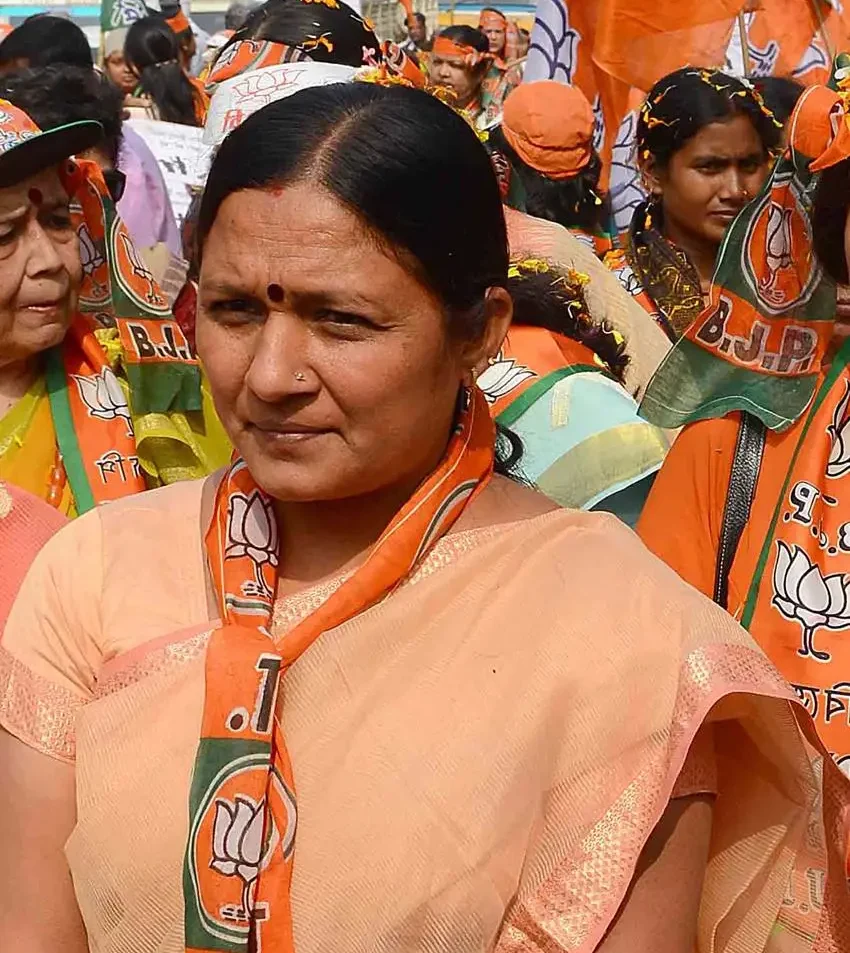In a recent event under the ‘School Chalo Abhiyan’ in Madhya Pradesh’s Dhar, Union Minister and BJP leader Savitri Thakur found herself at the center of controversy after misspelling the slogan “Beti Bachao, Beti Padhao” in Hindi on a whiteboard. Thakur, who is the Minister of State for Women and Child Development and a Lok Sabha member from Dhar, mistakenly wrote “Beddi Padao Bachav” instead. This error quickly went viral, drawing sharp criticism from the Opposition, particularly the Congress party.
Senior Congress leader KK Mishra seized the opportunity to question Thakur’s educational qualifications and literacy, terming it a “misfortune of democracy.” According to her affidavit, Thakur has studied up to class 12. Mishra further criticized the capability of individuals holding constitutional posts and managing significant departments when they struggle with basic literacy in their mother tongue. He suggested amending the Constitution to establish minimum educational qualifications for election candidates, highlighting the contradiction between the claims of rising literacy rates in the country and the apparent lack of literacy among some elected officials.
The ‘Beti Bachao Beti Padhao’ scheme, launched in 2015, aims to address the declining child sex ratio and promote women’s education. Thakur’s error has sparked a broader debate about the qualifications and competencies required for public office.
In defense of Thakur, Dhar district BJP president Manoj Somani accused the Congress of harboring “petty and anti-tribal thinking.” He argued that Thakur’s intentions were pure, and criticized the Congress for their attacks. Somani emphasized that the tribal community would not forgive the perceived insult to a tribal woman.
However, Leader of Opposition in the state assembly, Umang Singhar, who is also a tribal leader from Dhar, echoed the criticism on social media. Singhar questioned leadership and literacy of Savitri Thakur, suggesting that the incident reflected poorly on Prime Minister Narendra Modi’s selection of ministers. He criticized the lack of educational standards for public representatives and expressed concern over the impact such incidents have on children and their perception of leadership.
The controversy has ignited a debate over the importance of literacy and qualifications in leadership roles, with the Congress accusing the BJP of not valuing educated leaders. As the debate continues, the incident underscores the need for a reassessment of the standards and expectations for those holding public office in India.


